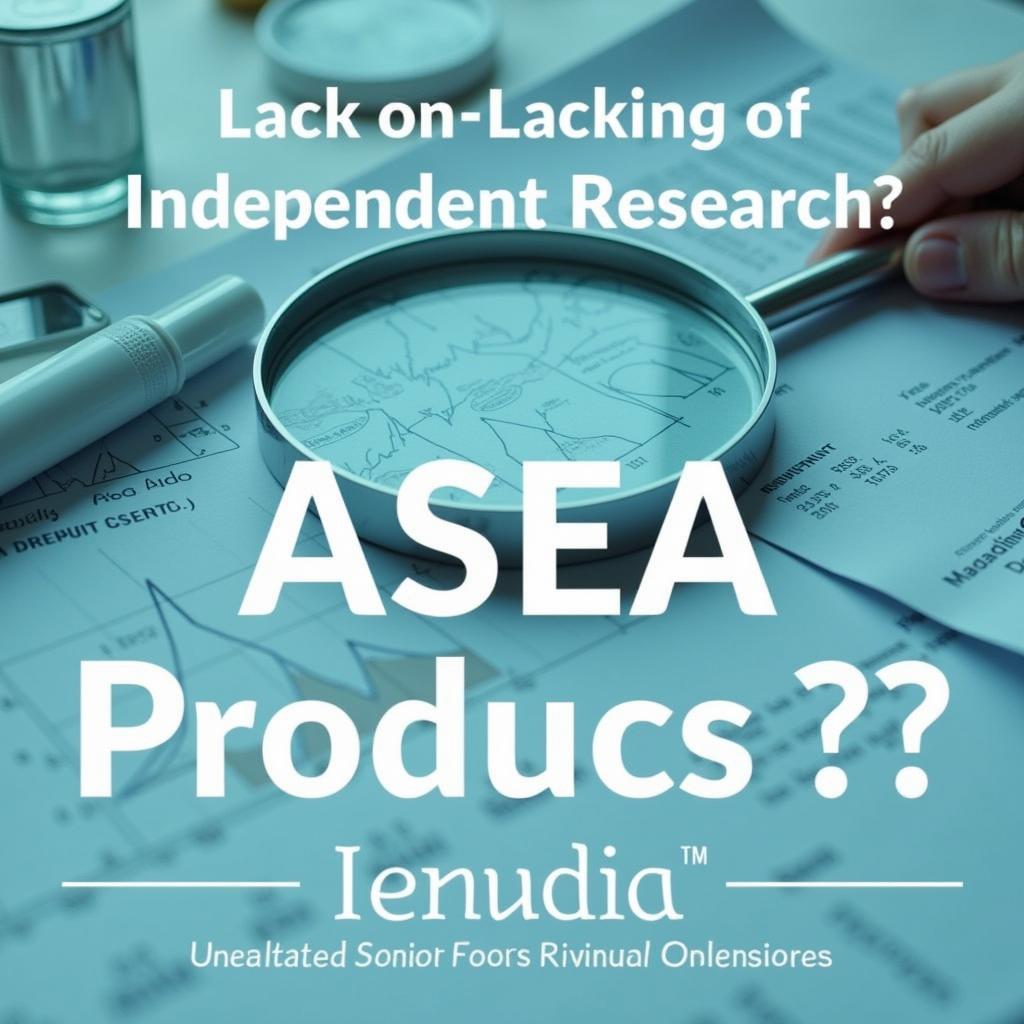The internet is abuzz with claims that “Asea Does Not Work.” This statement, often presented as fact, requires a closer look. ASEA, a network marketing company, promotes a product line centered around what they call “redox signaling molecules.” This article delves into the science behind these claims, examining the evidence and exploring the potential reasons why some people believe ASEA products don’t deliver on their promises.
What Does ASEA Claim?
ASEA’s flagship product, ASEA Redox Supplement, is marketed as a cellular health breakthrough. The company asserts that their process replicates the body’s natural production of redox signaling molecules, vital for cellular communication, repair, and immune function. ASEA suggests their product can enhance these processes, leading to a wide range of health benefits.
The Science of Redox Signaling Molecules
Redox signaling molecules are not a marketing gimmick; they are real entities with scientifically recognized roles in cellular function. These molecules, including reactive oxygen species (ROS) and reduced species, play crucial roles in cell signaling pathways that govern processes like:
- Immune Response: Redox molecules modulate immune cell activity, helping the body fight off infections and disease.
- Cellular Repair: These molecules signal damage and initiate repair mechanisms, keeping cells healthy and functioning optimally.
- Gene Expression: Redox signaling can influence how genes are expressed, impacting various cellular processes.
Understanding the science behind redox signaling is key to evaluating ASEA’s claims. While these molecules are undoubtedly crucial, the question remains: can a supplement effectively influence these complex processes?
Why the Skepticism?
The skepticism surrounding ASEA likely stems from several factors:
- Lack of Independent Research: A significant concern is the lack of robust, independent, peer-reviewed research substantiating ASEA’s specific claims. Most studies cited by the company are small, often funded internally, which raises concerns about potential bias.
- Marketing Hype vs. Scientific Evidence: ASEA’s marketing often emphasizes anecdotal evidence and testimonials, which while compelling, do not constitute scientific proof. This disconnect between marketing and independently verifiable evidence fuels skepticism.
- The Placebo Effect: It’s important to acknowledge the powerful influence of the placebo effect. People taking any supplement, believing it to be beneficial, may experience genuine improvements in well-being, independent of any inherent effect of the product itself.
 Lack of Independent Research on ASEA
Lack of Independent Research on ASEA
Examining the “ASEA Does Not Work” Argument
While skepticism is warranted, declaring definitively that “ASEA does not work” is an oversimplification. Here’s why:
- Individual Variation: People respond differently to various substances. Factors like genetics, overall health status, diet, and lifestyle can influence how someone reacts to a particular supplement. What works for one person may not work for another.
- Dosage and Duration: The efficacy of any supplement can be influenced by dosage and duration of use. There’s a lack of clarity on optimal ASEA dosage, and effects may not be immediate, requiring consistent use over time.
- Subjective Experiences vs. Measurable Outcomes: Many of ASEA’s claimed benefits, like increased energy or improved sleep, are subjective and difficult to quantify scientifically. This doesn’t invalidate individual experiences but makes it challenging to draw definitive conclusions.
Making Informed Decisions
Navigating the world of health supplements requires a critical and discerning approach. When considering ASEA or any supplement:
- Consult Healthcare Professionals: Before starting any new supplement regimen, consult your doctor, especially if you have pre-existing health conditions or are taking medications.
- Research Thoroughly: Don’t solely rely on company information or testimonials. Look for independent, peer-reviewed studies published in reputable scientific journals.
- Manage Expectations: Understand that supplements are not magic bullets. They should complement, not replace, a healthy lifestyle, including a balanced diet and regular exercise.
 Making Informed Decisions About ASEA
Making Informed Decisions About ASEA
Conclusion: Beyond the “ASEA Does Not Work” Debate
While the claim “ASEA does not work” is overly simplistic, legitimate concerns regarding the scientific evidence supporting ASEA’s claims remain. The lack of robust, independent research necessitates a cautious approach. Ultimately, individuals must make informed decisions about their health, prioritizing evidence-based information and consulting with healthcare professionals.
Remember, maintaining a healthy lifestyle through balanced nutrition, regular exercise, and stress management remains fundamental for overall well-being.
Need more insights on ASEA or other health and wellness topics in the ASEAN region? Explore our website for more informative articles.
Contact us:
Phone Number: 0369020373
Email: [email protected]
Address: Thon Ngoc Lien, Hiep Hoa, Bac Giang, Vietnam.

